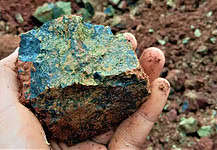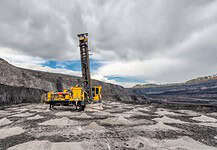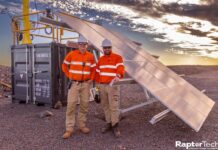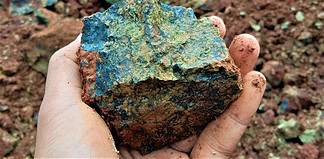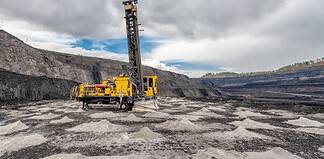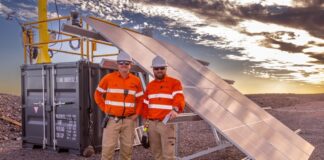
The mining workforce continuously requires cutting edge technical skills to lead the way forward in industry, including advanced mathematics and engineering, robotics, communications, trades and environmental science.
With increasing technological innovation, it’s imperative that practicable training should be conducted to ensure industry standards are met for all tasks and operations.
Future directions for training in the mining sector are moving across the board in a wide range of learning techniques. Today, training approaches include classroom teaching for theoretical or conceptual information, online training, on-the-job training, simulations, and information sessions such as workshops.
Ross Digby, Associate Director at the Centre for Energy and Infrastructure, says there are a range of different qualifications people can strive for – and there’s one in particular that many may not have considered.
“We do see more mature age people targeting education and training for work in the mining industry,” he explains.
“One of the gaps that we need to close is getting the younger generations considering mining as a career, making options available at universities that can lead to pathways for them to get a job at a mine site with a university qualification.
“Communication could be strengthened to get more youth interested in making the move towards mining, so that they see it as a long term, successful career.
“We could seriously close that gap with a skill so many young people already have – gaming.”
Mr Digby says that there are plenty of skills, and knowledgeable trades, that mining companies require on the ground including electricians and fitters, mechanics, security, engineering and technicians.
But with mining becoming increasingly automated, initiatives are recommended to look at enticing those with gaming and computer skills in a bid to bring them into mining’s ever-growing digital world.
It’s an exciting time for the mining industry, where attracting the younger workforce as well as upskilling the current workforce sees movement towards data analytics, robotics, process automation and digital transformation.
Mr Digby says despite operations becoming increasingly autonomous, trades are still required to make sure systems are in place, that technology hasn’t been compromised, and that equipment is being maintained.
“You still need all those people – network engineers, electricians, mechanics, the list goes on,” he says.
“Until a robot can do that work, the actual process needs people, but having said that, the industry also needs those who can operate the autonomous equipment. And what better skillset for that, than those who are great at gaming.
“I believe there’s a lot of opportunity to target gamers and attract them into the mining industry. There are so many people who create games and they’re extremely good at operating the autonomous equipment; they’re completely qualified for the roles they’re in at the mining company.
“This is an exciting growth to see when it comes to training, because qualifications in gaming can be moved across, and into, this industry.”
Mr Digby explains there is continuing demand for skilled individuals who have the ability to adapt to new technologies.
“Having that capability to continually re-invent within your industry is a critical skill people need to have,” he reveals.
“They need to integrate those new technologies into their everyday work environment, so we need people who can, for instance, not only be great at mechanical fitting or fabrication, but have the capability to continually adopt new technologies and integrate them to become more productive.
“Previously, too much of our focus has been on teaching those skills that we think people have to have; what we need is to train people to have skills so they can integrate and adapt those new technologies into their chosen trade.”
With mining automation technology adaption not yet reaching its full potential, the demand for people educated in subjects such as engineering, mathematics, technology and science will see exponential growth.
Mine controllers are frequently required to learn new systems as technology is introduced or upgraded, so training strategies are essential in the learning space to ensure they don’t fall behind the rate of their introduction into the mine domain.
Trades will always remain a strong part in the mining industry, but now is the time to look at attracting the robotics, the mechatronics and the IT people into the sector and shower them with opportunities so the mining sector moves forward together with technology.
By Kate Dzienis



